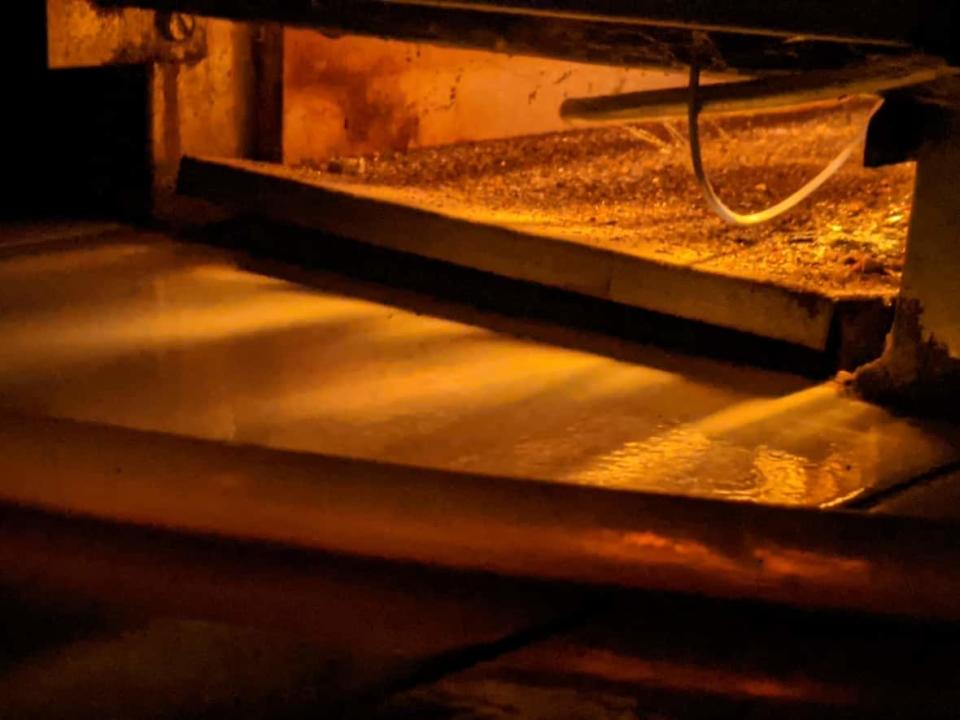Got a gas furnace? Higher prices to heat your home 'not going away'

About half of Canadian homes are heated with gas furnaces and energy analysts say those homeowners should get used to the idea that gas prices are not going to fall back to low levels seen in recent years.
Though winter has yet to arrive, bigger utility bills are another new cost facing Canadians already battered by months of inflation on food prices and many more goods and services.
"It depends on where you are in Canada, but in general about a 30 per cent increase in your utility bill," said Jackie Forrest, the executive director of the ARC Energy Research Institute in Calgary.
"And I would expect that's not going to go away."
How has inflation and the high cost of living impacted you? Tell us your story in an email to ask@cbc.ca.
Natural gas, which is mostly methane, a fossil fuel, is widely used to heat homes from Ontario west, whereas electricity and oil are the primary home heating sources from Quebec to Atlantic Canada.
While several factors are contributing to the price increase for natural gas, experts say homeowners can take steps to reduce their heating bills — including, for some, getting off gas altogether.
"There's actually quite a number of things one can do even without spending a whole lot of money," said Violet Kopperson, an energy advisor with the Windfall Ecology Centre in Aurora, Ont., just north of Toronto.
WATCH | What Canadians are doing to reduce energy costs as gas prices rise:
Price fluctuations, war and exports
This summer, natural gas prices in Canada rose to around nine dollars per gigajoule (GJ), about three and half times the average rate of the last six years, says Forrest, an energy analyst with 25 years of experience.
They've eased lately but she says they are not going to return to an average of about $2.90 per GJ that Canadians became accustomed to since about 2016.
"I think the last six years was an unusual period where we had very cheap gas. I don't think that's the future," said Forrest.

For several years there were high levels of natural gas production in North America and, she explained, a tiny level of exports.
More recently, though, North American natural gas producers have increased their exports. The change comes in part because of greater demand from European nations who have cut ties with Russia over its invasion of Ukraine, or been cut off from access to Russian by Vladimir Putin as retaliation for economic sanctions.
While about 10 percent of North American production is exported currently, Forrest says exports will keep rising.
"Before the end of this decade, we'll be sending about 20 per cent of North American production overseas," she said, adding that she doesn't see the industry increasing production to hold prices in check.
"We're going to have structurally higher gas prices than we used to have," she said, "so it's really changing the dynamics for North American gas markets."
Your bill and tips to cut it down
A gas bill is more than the cost of the gas, Forrest notes.
"Energy cost is just about one-third of your bill. You have other things like fees for distribution and transmission and you have carbon prices and things like that."
But there are simple ways you can cut that complicated heating bill down.

Kopperson, whose job is to assess homes for energy efficiency and provide advice to homeowners, has plenty of tips.
Simple low-cost actions include things like:
Lowering the thermostat while you sleep.
Making sure exterior doors have weather stripping and sweeps to prevent heat escaping.
Sealing around small holes for cable lines and vents.
Changing your washrooms to low-flow shower heads.
A low flow shower is cheaper because "the more hot water you use, the more energy you use," said Kopperson.
More expensive changes can include upgrading to triple-pane windows and adding insulation to your attic or walls.
Getting off gas, with grants
Kopperson also recommends homeowners take a look at the federal government grants and loans for improving the energy efficiency of your home, which can offset some of those renovation costs. Some provinces and cities also have financial incentives for retrofits.

Suzanne Kettley of Ottawa is taking advantage of those programs to improve the energy efficiency of her house and get off gas altogether.
She just replaced her furnace with a heat pump to keep her home cozy in the winter and cool in the summer. Soon she's adding a hybrid water heater that uses a heat pump and electricity to provide hot water.
"I'm lucky because at the same time that I'm going to be decreasing my carbon footprint, I'm also going to be avoiding the higher gas prices."
She also hopes to see long term savings in dealing with only one utility company and one form of energy electricity.
"If I'm paying delivery fees and administration fees, if I'm only paying them once to one company, then that's going to be cheaper."

High prices are relative
As prices rise in Canada, consumers may find some small relief in the fact that the situation here is not as bad as it is in Europe.
There, governments have asked people to cut back on consumption and limit the temperature of their homes, while some businesses have reduced hours or even closed because of higher heating costs.
This week, leaders of the European Union debated but failed to come to a deal on capping gas prices, though earlier this year the idea was supported by 15 EU countries.
The new European market for North American gas means Canada's no longer a "bottled up island" where the gas supply has nowhere to go but to domestic and American consumption.
"We're being more influenced by what's happening in the rest of the world," said Forrest.
"We still have cheap energy, but it's just not as cheap as we are used to."

 Yahoo Finance
Yahoo Finance 